Moral and civic education is an important element of whole-person education, which fosters positive values and attitudes in students through the organization of learning activities and the integration of curriculum across disciplines. Through serving the community, we will establish a culture of volunteer service and participation, so that students can embody the spirit of "showing compassion" and contribute to the society.
To cultivate students' self-discipline, self-confidence and self-improvement, and become a good young person who does good deeds, speaks good things and has good intentions.
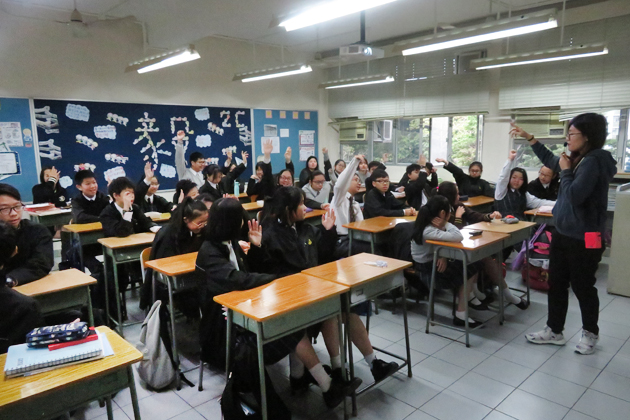 |
Growth Lessons – Cultivate students' whole-person development
Secondary 1 and Secondary 2 participated in the Department of Health’s New Drivers for Growth Course, which aims to enhance young people's self-awareness and acceptance, learn to deal with their emotions and stresses, and enhance their harmonious coexistence with others and problem-solving skills. |
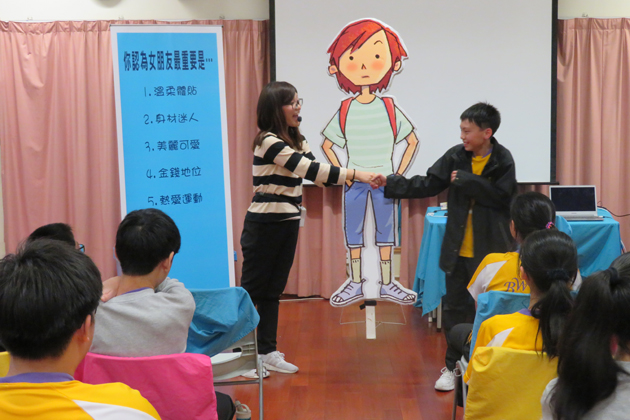 |
Sex education activities
Through different activities, students can build a healthy self-image, learn to protect their bodies and respect others, further understand the difference between "love" and "sex", and grow from love, so as to promote harmonious gender relations. |
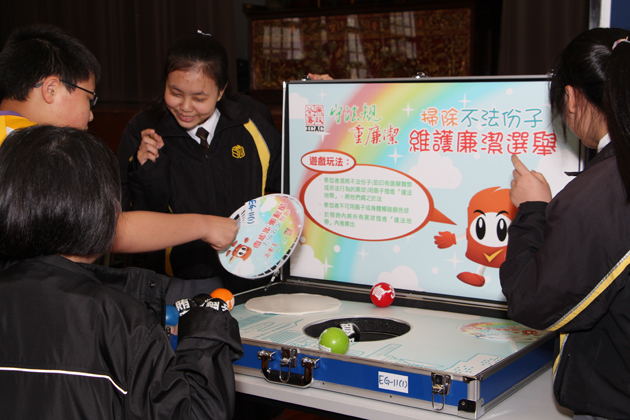 |
Integrity promotion activities
"Integrity" is the first value cultivated. Junior high schools brought out the importance of integrity through exhibitions, booth games and the short film "Action Against Integrity". The high school participates in the iTeen Leadership Program and assists in organizing integrity promotion activities in the school to inspire students to think positively. |
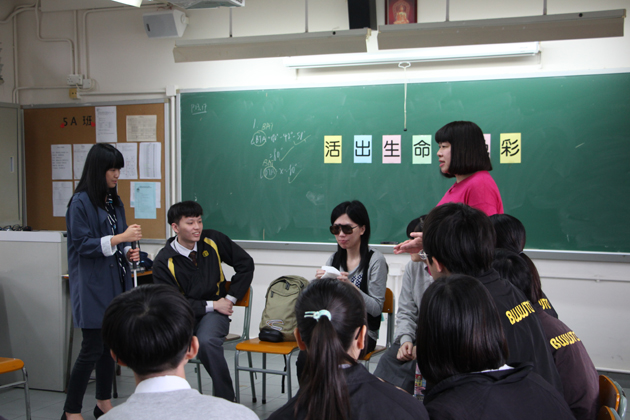 |
Experiential activities – living the colors of life
Through experiential learning, high schools enable students to change their views on disadvantaged groups and people with disabilities, reflect on their own lifestyles, cherish the learning opportunities in front of them, and live out the color of life. |
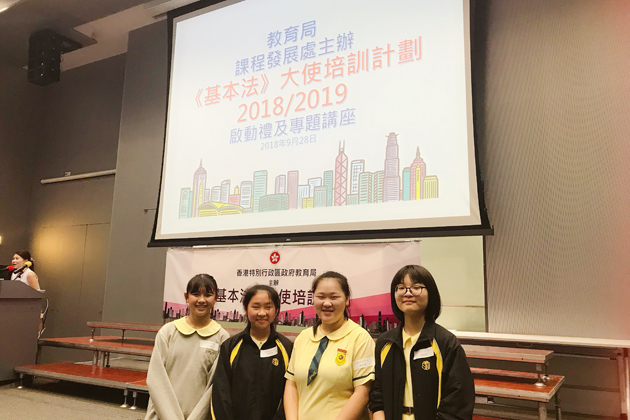 |
Patriotism Education
To cultivate students' understanding of the country and identity with the nation, monthly flag-raising ceremonies, exhibitions and booth games are organized, and students are encouraged to participate in the "Hong Kong Youth Military Summer Camp" organized by the Education Bureau to enhance students' moral character. |
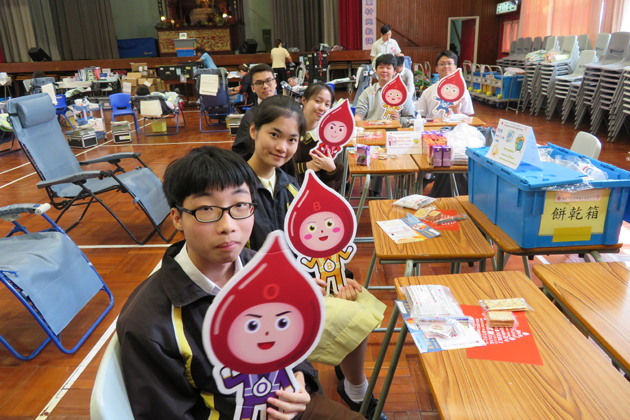 |
Care about society and look at the world
Through various activities, students can understand the characteristics of Hong Kong society, understand the importance of the rule of law, democracy, human rights and justice, and put them into practice in their daily lives, such as celebrity lectures, lunchtime current affairs forums, morning broadcasts, Community Chest Casual Wear Day, blood donation activities, flag selling fundraising, wrapping lucky bags, distributing lucky bags, elderly visits, etc. |
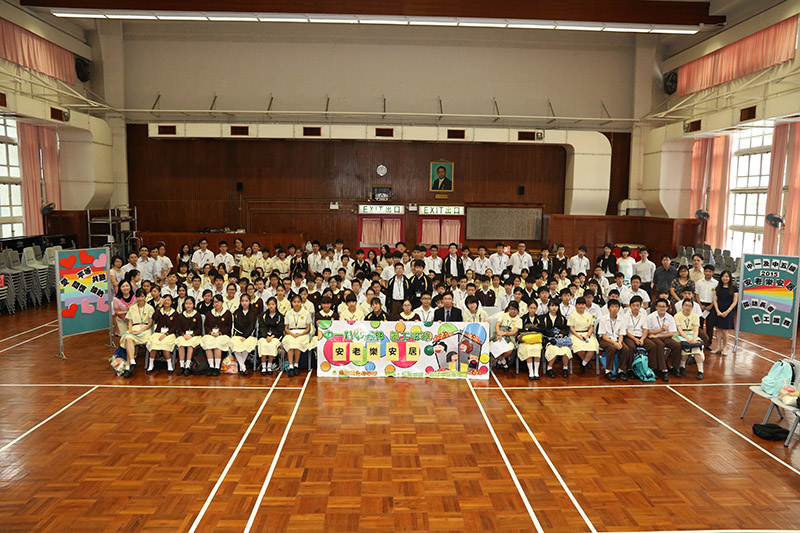 |
Voluntary hours
All students who register as U21 Youth Network volunteers and accumulate designated service hours will receive Certificate of Commendation from the Social Welfare Department: Gold Award (200 hours or more), Silver Award (100 hours or more), Bronze Award (50 hours or more). In addition, in line with the development of "Other Learning Experiences" in the new high school curriculum, the number of student volunteer service hours will be recorded on the report sheet. |
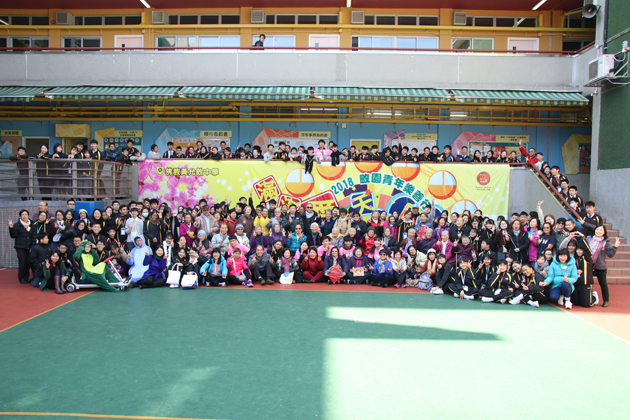 |
Secondary 1 and Secondary 5 Volunteer Service
Secondary 5 navigators lead Secondary 1 students to visit the elderly in the community, cultivate students' social strength, let them experience and practice volunteer work, and more importantly, let young people experience the true meaning of equality and inclusion, mutual acceptance, and create love and care for the community. |
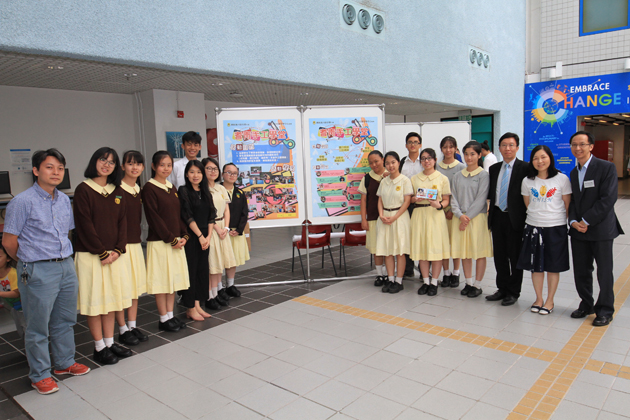 |
"Youth Happy Acts in the BWWTC’" large-scale volunteer activity
In partnership with community service agencies, a large volunteer service day is held annually on or off campus. All teachers, Secondary 4 students, various school groups, and parent-teacher associations will participate to bring out the message of "Volunteer Service Participation". |
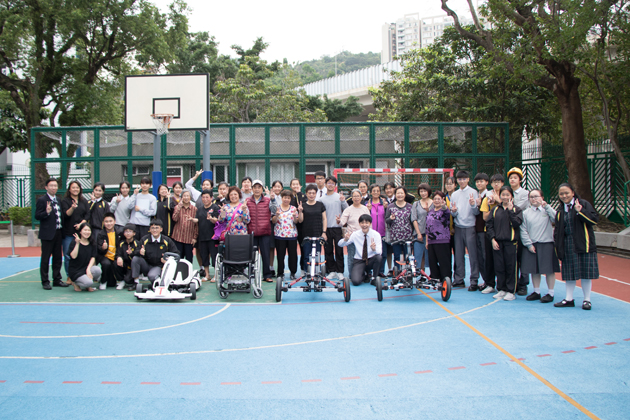 |
Service-Learning Program – Self-Directed Holistic Learning: A program that prepares students to be designers of learning experiences
Students design their own activities to integrate the "Other Learning Experiences" physical arts development curriculum with social services, so that students can contribute the knowledge and skills learned in the classroom to the society. The whole activity, from planning, promotion and reflection, is led by students. |